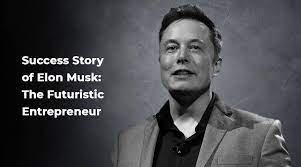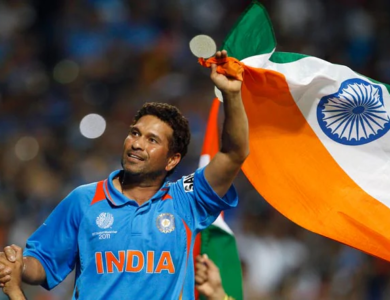The Run Machine: Virat Kohli – A Cricketing Legend’s Journey
From 'Cheeku' to Cricketing Royalty: The Inspiring Rise of Virat Kohli

Virat Kohli, the epitome of cricketing excellence and the current captain of the Indian cricket team, has an awe-inspiring journey that has taken him from the streets of Delhi to the pinnacles of international cricket. His early life and formative years played a crucial role in shaping the man who would become one of the world’s most celebrated cricketers. Here’s an introduction to Virat Kohli’s biography, focusing on his early life:
Early Life and Childhood:
Virat Kohli was born on November 5, 1988, in Delhi, India. He grew up in a middle-class Punjabi family, and his father, Prem Kohli, worked as a criminal lawyer, while his mother, Saroj Kohli, was a housewife. He has an older brother, Vikas, and an older sister, Bhavna.
From a young age, it was evident that Kohli had an innate passion for cricket. He started playing the sport as a child, and it quickly became a significant part of his life. His family recognized his talent and provided him with unwavering support and encouragement.
Early Cricketing Days:
Kohli’s cricketing journey began on the streets and grounds of Delhi. He joined a local cricket club and began to fine-tune his skills. It wasn’t long before his talent and dedication caught the eye of coaches and selectors. He attended Vishal Bharti Public School, where he balanced his education with his passion for cricket.
One of the pivotal moments in his early career was when he enrolled in the West Delhi Cricket Academy. Under the guidance of coach Rajkumar Sharma, Kohli honed his skills and developed a solid foundation in the game. His hard work and talent were apparent to all who saw him play.
Emerging Talent:
Kohli’s consistent performances in age-group cricket and his remarkable ability to score runs made him stand out among his peers. He represented the Delhi Under-15, Under-17, and Under-19 teams, and he was known for his leadership qualities even at a young age. His leadership skills were on full display when he captained the Indian Under-19 cricket team to victory in the ICC Under-19 Cricket World Cup in 2008. This achievement marked the beginning of his journey to international stardom.
The foundation of discipline, dedication, and passion laid during his early years would play a crucial role in shaping Virat Kohli into the cricketing icon he is today. His journey from those Delhi streets to becoming the captain of the Indian cricket team is a remarkable story of talent, determination, and the pursuit of excellence.
The NickName “Cheeku”:
The nickname “Cheeku” holds a special place in the life of Virat Kohli, the Indian cricketing legend. It’s a term of endearment that was given to him during his formative years as a cricketer and has been associated with him throughout his career. The origins of the nickname “Cheeku” are both nostalgic and heartwarming:
How the Nickname ‘Cheeku’ Came About:
- Childhood Teammates: When Virat Kohli was a young and talented cricketer, he used to play with several friends and teammates in the local cricket circuits of Delhi. During those days, he was part of the West Delhi Cricket Academy, where he began to formalize his cricketing skills.
- Resemblance to a Cartoon Character: It was during his time at the academy that his friends and teammates noticed a striking resemblance between Kohli’s hairstyle and that of a popular comic book character. The character in question was “Cheeku,” a rabbit from the famous Indian comic series “Champak.”
- Affectionate Nickname: Virat Kohli’s friends and teammates started affectionately calling him “Cheeku” in reference to this resemblance. The nickname quickly caught on and became a part of his identity within his cricketing circle.
- Enduring Nickname: Even as Kohli’s cricketing career skyrocketed and he became a global cricketing sensation, the nickname “Cheeku” remained with him. It was a reminder of his humble beginnings, his early love for the game, and the camaraderie he shared with his childhood friends.
Domestic Cricket Successes:
Virat Kohli’s journey to international stardom was paved with remarkable successes in domestic cricket. Before he made his mark on the international stage, he honed his skills and established himself as a prolific batsman in the domestic cricket circuits of India. Here are some of his notable achievements in domestic cricket:
- Ranji Trophy Debut:
- Virat Kohli made his debut in first-class cricket for Delhi during the 2006-07 season of the Ranji Trophy, which is India’s premier domestic cricket competition. He was just 18 years old at the time.
- Outstanding Ranji Trophy Performances:
- Kohli quickly rose through the ranks with impressive performances in the Ranji Trophy. In the 2006-07 season, he scored a century against Karnataka, showcasing his immense talent.
- Captaincy of Delhi:
- Virat Kohli had the honor of captaining the Delhi Ranji team at a young age. His leadership skills were evident early in his career, and he continued to lead the team with distinction.
- Ranji Trophy Century in the Final:
- One of his standout moments in domestic cricket came during the 2009-10 Ranji Trophy final against Karnataka. Kohli scored a memorable century in the second innings of the match, helping Delhi win the title.
- Emerging Player of the Tournament:
- During the 2008-09 season of the Indian Premier League (IPL), Virat Kohli was awarded the “Emerging Player of the Tournament” for his performances with the Royal Challengers Bangalore. This recognition highlighted his potential on the domestic and T20 cricket stage.
- Records and Consistency:
- Kohli’s consistency in domestic cricket, especially in the Ranji Trophy, led to comparisons with some of India’s cricketing greats. He accumulated significant runs and played crucial innings for his team.
Cricket Career: The Beginning & Timeline
It is rare to find individuals who possess unwavering conviction about their career aspirations from an early age. Virat Kohli, however, was one of such individuals, displaying an interest in cricket from the tender age of three.
It may be hard to believe, but it is true. Believing in his son’s passion for cricket, Virat’s father enrolled him in the West Delhi Cricket Academy in 1998, when he was just nine years old.
Here, he received coaching from Raj Kumar Sharma, who was impressed by Kohli’s exceptional performance just two weeks into his coaching. Additionally, Kohli played matches at the Sumeet Dogra Academy in Delhi.
Kohli first caught people’s attention when Rajkumar Sharma invited Ashish Nehra to witness a match in the 2002-2003 Polly Umrigar Trophy. Virat Kohli was a part of the Delhi Under-15 team, where he became the highest run-scorer with an average of 34.40, scoring 172 runs.
After an outstanding performance in the 2002-03 Polly Umrigar Trophy, Kohli became the team captain, leading them to the 2003-04 trophy.
He was subsequently selected for the Delhi Under-17 team and participated in the 2003-04 Vijay Merchant Trophy, where he once again emerged as the highest scorer with 470 runs in four matches. Kohli continued to perform well in the following season, helping the Delhi Under-17 team win the 2004-05 Vijay Merchant Trophy.
In 2006, he made his debut for Delhi and played his first-ever List A match against Tamil Nadu in the Ranji Trophy. Although he did not score very well in the match, he showed considerable promise.
Regrettably, the Indian cricketer, Virat Kohli, faced a personal setback in December 2006 when he lost his father to a heart attack during the Ranji Trophy.
Despite the tragic loss of his father, Kohli remained resolute in his ambition and utilized his grief to fuel his performance. The day after his father’s demise, Kohli played a pivotal role in a Ranji match against Karnataka, scoring an outstanding 90 runs. This performance has been immortalized in cricket history and serves as an inspiration to countless individuals across the country. It exemplifies Kohli’s unwavering dedication to his goals, even in the face of dire personal loss.
Kohli’s exceptional performance in the Ranji Trophy earned him a place in the India Under-19 team for the England tour in 2006. He continued to demonstrate his prowess and made his T20 debut in 2007. This marked the beginning of an illustrious cricket career that has since inspired thousands of aspiring cricketers and satisfied the hunger of countless cricket fans. The following graphic provides an overview of Virat Kohli’s career before we delve into his journey into the international cricket scene in greater detail:
Virat Kohli International Career:
The exemplary talent of King Kohli undoubtedly warranted the attention it received. This report provides an overview of the notable accomplishments in the cricketer’s mainstream career. Virat Kohli had already gained considerable popularity for his performance, but his first taste of true success came when he captained the U-19 World Cup team.
He led the Under-19 team to victory and lifted the 2008 Under-19 World Cup. Kohli’s killer cover drive and commendable performance won him the Border-Gavaskar Scholarship later in 2008. From there, he went on a six-week training at Cricket Australia’s Centre of Excellence in Brisbane.
In August 2008, the Chase Master made his international ODI debut at 19 years of age. Although he was dismissed for 12 runs in that match, he went on to score his maiden half-century (ODI) in the fourth match of the series, against Sri Lanka. The Indian Team eventually won the series against Sri Lanka, which was also being conducted in Sri Lanka.
Fate continued to work in Kohli’s favor, and he soon got the chance to play in the 2009 ICC Championship Trophy for the Indian team. This was the beginning of many firsts for Virat Kohli, who won his first Man of the Match Award in the series match against West Indies.
He also hit his maiden ODI century in December 2009 and a second in 2010. Kohli’s continued performance helped him win the hearts of cricket fans across the globe and also a spot on the 2011 World Cup Indian team. Here he became the first Indian batsman to score a century (against Bangladesh) in his World Cup debut.
In June-July 2011, he got a spot on the test squad for the West Indies Tour. However, he struggled to perform in the format and was dropped from the team.
In August 2011, he was called back for a Test series against England as Yuvraj Singh’s replacement but did not get to play any match. But he bided his time and finally outshone as a brilliant player in the Test format while touring Australia in December 2011.
Even though India lost the Australia series, Kohli scored his maiden Test century in the final match of the series and was the top scorer for the Indian team.
In 2012, Virat Kohli was appointed the Vice-Captain for the 2012 Asia Cup to be held in Bangladesh. Again, even though India did not make it to the finals, Kohli scored 183 runs in the final group match against Pakistan. This became a record highest individual score against Pakistan (ODI), breaking Brian Lara’s long-standing record of 156 runs. His passion for the sport shone through his consistent performance in 2013.
In an ODI series against Australia in 2013, he scored the fastest century by an Indian batsman by making 100 runs off 52 balls.
In 2014, Kohli finally made the Indian Test Squad Captain and amassed a total of 692 runs, the most by an Indian in a Test series in Australia.
In his 2015 stint, Kohli truly owned the ‘fastest batsman’ title by scoring 1000 runs in T20I against South Africa, in the 17th innings. He also became the first Indian to score a century against Pakistan in the World Cup, in the same year. His success streak continued in 2017 when he scored a total of 2818 runs in the international cricket scene.
After M.S. Dhoni resigned from captaincy the same year, Virat Kohli was appointed as the captain across all formats.
In 2017, he also became the first-ever batsman to hit six double hundreds as the Captain. Virat Kohli’s impeccable performance led him to Rank 1 in the ICC Test Rankings in August 2018, being recorded as the 7th Indian batsman to achieve this feat. The same year, Kohli became the first Indian Captain to hit 3 successive centuries in ODIs, scoring 593 runs- the highest total by an Indian batsman in a losing series, and most importantly became the fastest player to score 10,000 ODI runs.
While the win ratio for India under Virat Kohli’s captaincy (barring the ICC trophies) was quite high, post the loss of the 2021 T20 World Cup, Virat Kohli resigned from the T20 captaincy in September 2021. He was replaced by Rohit Sharma, who is also the current captain.
In December 2021, Kohli also stepped down from the ODI captaincy. And from the Test captaincy in January 2022. Kohli continued to perform well in the Asia Cup 2022 and the 2022 T20 WC, and held fort alongside Surya Kumar Yadav. Kohli also made it to the ICC Men’s World Cup 2023 squad, announced in September 2023. In the India vs. Afghanistan match on October 11 (which was Kohli’s 53rd World innings), he broke Sachin Tendulkar’s record of scoring the most runs for ODI and T20 world cups.
Virat Kohli’s Awards & Achievement:
Virat Kohli, often referred to as “The Run Machine” for his remarkable consistency and prolific run-scoring abilities, has accumulated a plethora of awards and achievements throughout his cricketing career. His list of accolades is a testament to his extraordinary talent and dedication to the sport. Here are some of the notable awards and achievements earned by Virat Kohli:
Awards:
- Sir Garfield Sobers Trophy for ICC Cricketer of the Year: Virat Kohli has received this prestigious award multiple times, including in 2017 and 2018. It is presented to the best cricketer in the world, recognizing his overall contributions to the game.
- ICC ODI Cricketer of the Year: Kohli has been named the ICC ODI Cricketer of the Year multiple times in recognition of his outstanding performances in One Day Internationals.
- ICC Test Cricketer of the Year: He has also been awarded the ICC Test Cricketer of the Year, highlighting his exceptional abilities in the longest format of the game.
- Rajiv Gandhi Khel Ratna: This is India’s highest sporting honor, and Kohli was conferred with the Rajiv Gandhi Khel Ratna in 2018 for his outstanding contributions to cricket.
- Padma Shri: He has been honored with the Padma Shri, one of India’s highest civilian awards, in recognition of his exceptional cricketing achievements.
Achievements:
- Fastest Century in ODIs by an Indian: Virat Kohli holds the record for the fastest century by an Indian in One Day Internationals, reaching the milestone in just 52 balls.
- Most ODI Centuries by an Indian: He holds the record for the most centuries in One Day Internationals by an Indian, with over 40 centuries to his name.
- Fastest to 8,000, 9,000, 10,000, and 11,000 Runs in ODIs: Kohli is the fastest cricketer to reach these significant run-scoring milestones in ODIs.
- Most Runs in a Calendar Year: He has set records for the most runs scored by a batsman in a calendar year in both ODIs and Tests.
- Consistency as Captain: Under his captaincy, the Indian cricket team achieved significant milestones, including the team’s first-ever Test series win in Australia.
- Prolific Run-Scorer: Kohli is one of the leading run-scorers in international cricket, with numerous records for scoring runs in all three formats.
- Highest ICC Player Rankings: He has achieved the highest ICC Player Rankings for a batsman in both ODIs and Tests, establishing himself as the world’s top-ranked batsman.
- IPL Success: Kohli is one of the most successful and consistent batsmen in the Indian Premier League (IPL) and has led the Royal Challengers Bangalore.
These awards and achievements collectively illustrate Virat Kohli’s status as one of the finest cricketers of all time. His dedication, talent, and relentless pursuit of excellence have made him an iconic figure in the world of cricket and a source of inspiration to aspiring cricketers around the globe.



